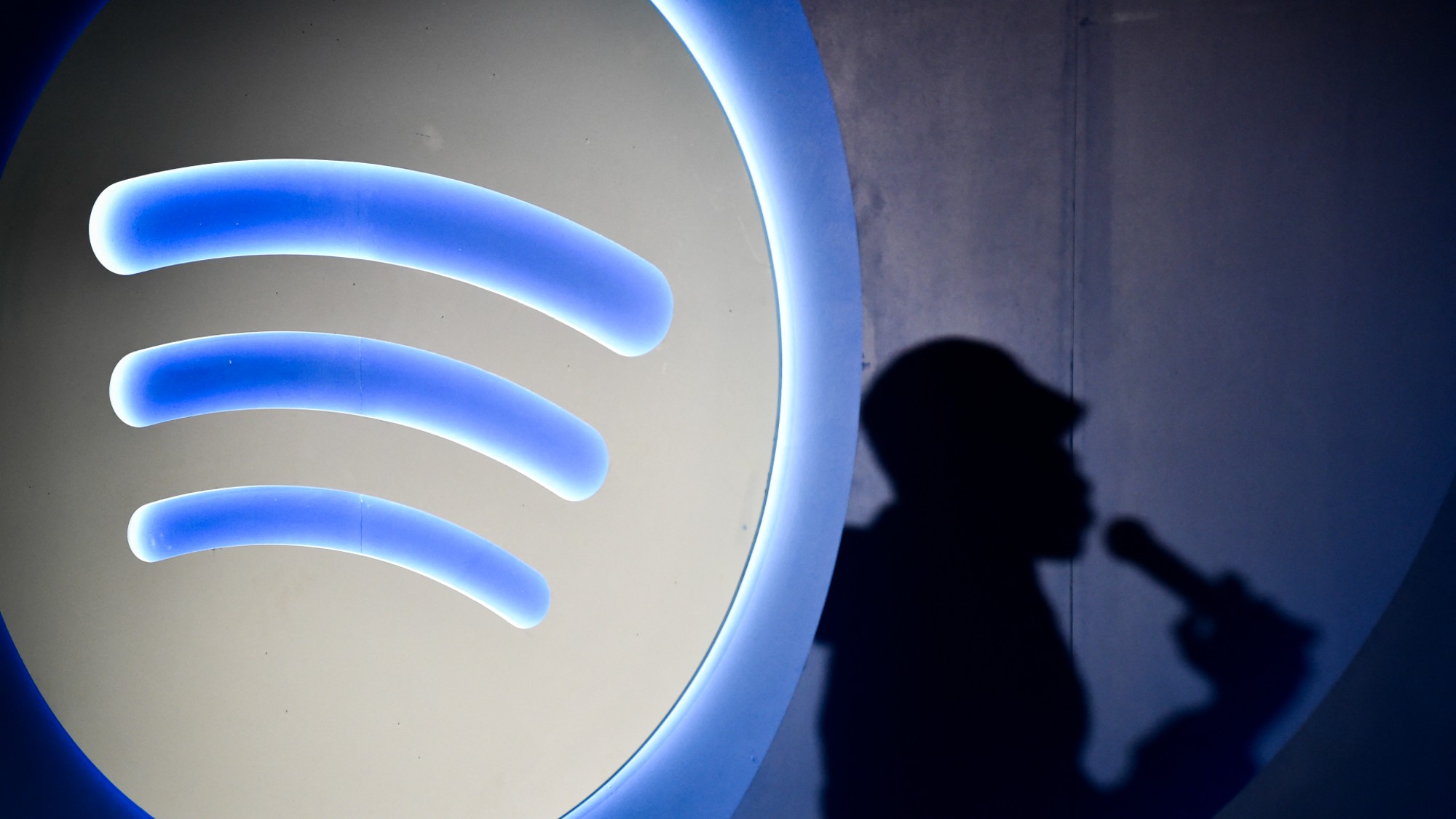Spotify has an issue with 'fake artists'
Some of these bands are reportedly generating millions of streams from Spotify users


A free daily email with the biggest news stories of the day – and the best features from TheWeek.com
You are now subscribed
Your newsletter sign-up was successful
Spotify has more than 626 million users worldwide, but some of these listeners might be unknowingly jamming out to music by "fake" artists. The world's top music streaming platform has reportedly become inundated with unlicensed covers of songs — many generated by artificial intelligence. These songs are causing concern among some in the industry that Spotify's problem with "fake" artists may be getting out of hand.
The issue of fake artists on Spotify is not new; reports as far back as 2016 indicate that the platform was allegedly making its own records using the names of people that did not exist. But the recent jumpstart of AI seems to have brought the problem to a heightened level.
What are these 'fake artists?'
It was recently reported that "covers of popular songs were being inserted into large, publicly available playlists, hidden among dozens of other covers by real artists while racking up millions of listens and getting paid," said Slate. The artists in question "all fit a certain pattern, with monthly listeners in the hundreds of thousands, zero social media footprint, and some very ChatGPT-sounding bios." Notably, none of these bands have originals on Spotify; instead, a "group might cover the Red Hot Chili Peppers and Third Eye Blind and then pivot to 'Linger' by the Cranberries in the same record," and "if you didn't think the song was AI, you probably wouldn't suspect a thing."
The Week
Escape your echo chamber. Get the facts behind the news, plus analysis from multiple perspectives.

Sign up for The Week's Free Newsletters
From our morning news briefing to a weekly Good News Newsletter, get the best of The Week delivered directly to your inbox.
From our morning news briefing to a weekly Good News Newsletter, get the best of The Week delivered directly to your inbox.
Spotify refers to these artists as "content creators," but this "could be pretty much anyone on the artist side of things — the 'bands' themselves, their management, the label," said Slate. Some in the industry suspect it "might be the third-party intermediaries many artists use to upload and manage their music across streaming platforms," Henderson Cole, an entertainment and music lawyer, said to Slate.
The issue seems to move across genres. A group of Redditors first found the AI songs in country music, but there is also a "broader, coordinated effort by individuals using AI to create and distribute instrumental music that mimics well-known metalcore bands," music publication Idioteq said. As with other genres, this is "likely a calculated attempt to siphon off streams from the followers of these legitimate artists, thereby generating revenue for the creators of these AI tracks."
While it cannot be confirmed that all of these songs are the result of AI, many "appear to be similar versions of the same piece of poorly produced music, each differentiated by random changes in pitch," said gaming-and-tech site Kotaku. These songs from "no-name artists have been found to bear striking similarities to one another. They are clearly the same piece of music, starting the same way and using the same melodic motifs." It seems this problem is not unique to Spotify, either, as there is a "similarly weird thing on Apple Music … hundreds of classical recordings that have been pitch-shifted and the performer metadata stripped," musician Zoë Keating said on X in 2023. The recordings are "all attributed to nonexistent artists."
What is Spotify's response?
Spotify "does not have a policy against artists creating content using autotune or AI tools, as long as the content does not violate our other policies, including our deceptive content policy, which prohibits impersonation," the company said in a statement to Slate. So stopping the uploading of more of these songs presents a challenge.
A free daily email with the biggest news stories of the day – and the best features from TheWeek.com
"I don't know how you legislate any of this stuff," Rick Beato, a musician, producer, and YouTuber who has previously testified about AI copyright in music, said to Slate. Spotify also may be "slipping both real and AI songs into playlists and harvesting listens to keep a larger percent of the royalty pool for itself to maximize profits." So there "would really be an incentive for Spotify to police that from third parties, because they want to be the ones doing it."
Justin Klawans has worked as a staff writer at The Week since 2022. He began his career covering local news before joining Newsweek as a breaking news reporter, where he wrote about politics, national and global affairs, business, crime, sports, film, television and other news. Justin has also freelanced for outlets including Collider and United Press International.
